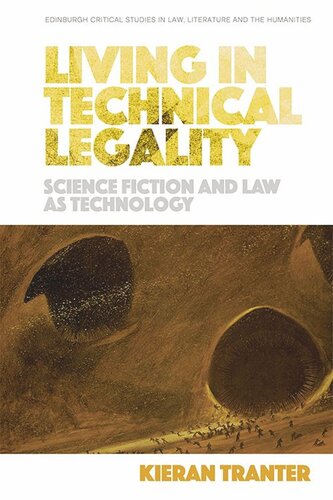

Most ebook files are in PDF format, so you can easily read them using various software such as Foxit Reader or directly on the Google Chrome browser.
Some ebook files are released by publishers in other formats such as .awz, .mobi, .epub, .fb2, etc. You may need to install specific software to read these formats on mobile/PC, such as Calibre.
Please read the tutorial at this link: https://ebookbell.com/faq
We offer FREE conversion to the popular formats you request; however, this may take some time. Therefore, right after payment, please email us, and we will try to provide the service as quickly as possible.
For some exceptional file formats or broken links (if any), please refrain from opening any disputes. Instead, email us first, and we will try to assist within a maximum of 6 hours.
EbookBell Team

4.1
60 reviewsThrough detailed readings of popular science fiction, including the novels of Frank Herbert and Octavia E. Butler and television’s Battlestar Galactica and Doctor Who, this is the first sustained examination of legality in science fiction. Kieran Tranter includes substantive worked examples of the law and legal concepts projected by these science fiction texts, such as Australian car culture, legal responses to cloning and the relationship between legal theory and science fiction.
Successive transformations have resulted in the emergence of a total technological world where old separations about ‘nature’ and ‘culture’ have declined. With this, the tendency towards technicity within modern law has flourished – there has often been identified a mechanistic essence to modern law in its domination of human life. Usually this has been considered an ‘end’ and a loss, the human swallowed by the machine. However this innovative book sets out to re-address this tendency.
By examining science fiction as the culture of our total technological world, it journeys with the partially-consumed human into the belly of the machine. What it finds is unexpected. Rather than a cold uniformity of exchangeable productive units, there is warmth, diversity and ‘life’ for the nodes in the networks. Through its science fiction focus, it argues that this life generates a very different law of responsibility that can guide living well in technical legality.